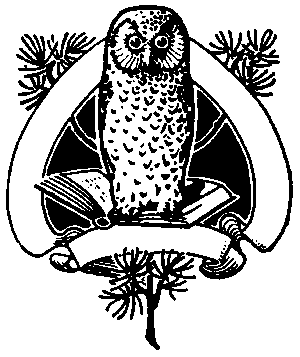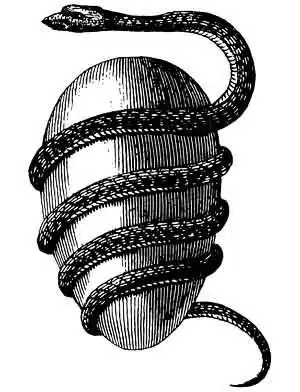Ideas and learning
- not necessarily in that order.Studying the thoughts behind mythsAlthough I studied the natural sciences at college — or maybe therefore — I have always felt ambiguous toward the academic world. School, all the way to that level, had in my eyes mostly rewarded conformity and the ability to memorize — hardly true understanding of any kind.
With a sharper choice of words one might call it obedience — although in Swedish educational statutes there is talk about "independent and critical thinking". As mentioned in my bio, I prefer the auto didactic, even within the framework of formal education. In spite of this, I complied and did, at the beginning of the 80s, study for some time at the Stockholm University: popular culture, social anthropology and the history of ideas, whereof only the latter for more than one semester. What fascinated me with the history of ideas was that in this subject, one dares to embrace practically all human thinking — at least that of the western tradition. So, when I decided to approach the Lund University a decade later, the same department was a natural choice. In Lund, though, it is called history of ideas and learning, whereof the first intrigues me much more than the second, but it proved to be the kind of learning that leads to understanding (to the extent I am able of it). The owl above, a drawing I have had the nerve to borrow from the department at Lund, appears here as a harsh reminder for man never to cease in curiosity. So far, there seems not to be any real threat of that, as far as I understand myself — but you never know. The Tao te ching says:
and those who are learned do not know. In spite of my lack of education — and of respect for such a thing — I have remained at this institution, specializing in research on creation myths. In this, I am particularly interested in the patterns of thought and reason, which may be traced through the creation myths, and thereby perchance it is also possible to distinguish patterns of the human mind — if any generalization of that kind is at all meaningful. Enough history of ideas I have adopted, though, to regard the sciences of our time as neither more certain nor more wise than those of ancient times. What is true is still a matter of opinion — at least in fields that are most dear to us, and such fields are the settings of every creation myth.


MYTH
IntroductionCreation Myths: Emergence and MeaningsPsychoanalysis of Myth: Freud and JungJungian Theories on Myth and ReligionArchetypes of Mythology - the bookPsychoanalysis of Mythology - the bookIdeas and LearningCosmos of the AncientsLife Energy EncyclopediaOn my Creation Myths website:
Creation Myths Around the WorldThe Logics of MythTheories through History about Myth and FableGenesis 1: The First Creation of the BibleEnuma Elish, Babylonian CreationThe Paradox of Creation: Rig Veda 10:129Xingu CreationArchetypes in MythAbout CookiesMy Other WebsitesCREATION MYTHSMyths in general and myths of creation in particular.
TAOISMThe wisdom of Taoism and the Tao Te Ching, its ancient source.
LIFE ENERGYAn encyclopedia of life energy concepts around the world.
QI ENERGY EXERCISESQi (also spelled chi or ki) explained, with exercises to increase it.
I CHINGThe ancient Chinese system of divination and free online reading.
TAROTTarot card meanings in divination and a free online spread.
ASTROLOGYThe complete horoscope chart and how to read it.
MY AMAZON PAGE
MY YOUTUBE AIKIDO
MY YOUTUBE ART
MY FACEBOOK
MY INSTAGRAM
STENUDD PÅ SVENSKA
|
 Archetypes of Mythology
Archetypes of Mythology Psychoanalysis of Mythology
Psychoanalysis of Mythology